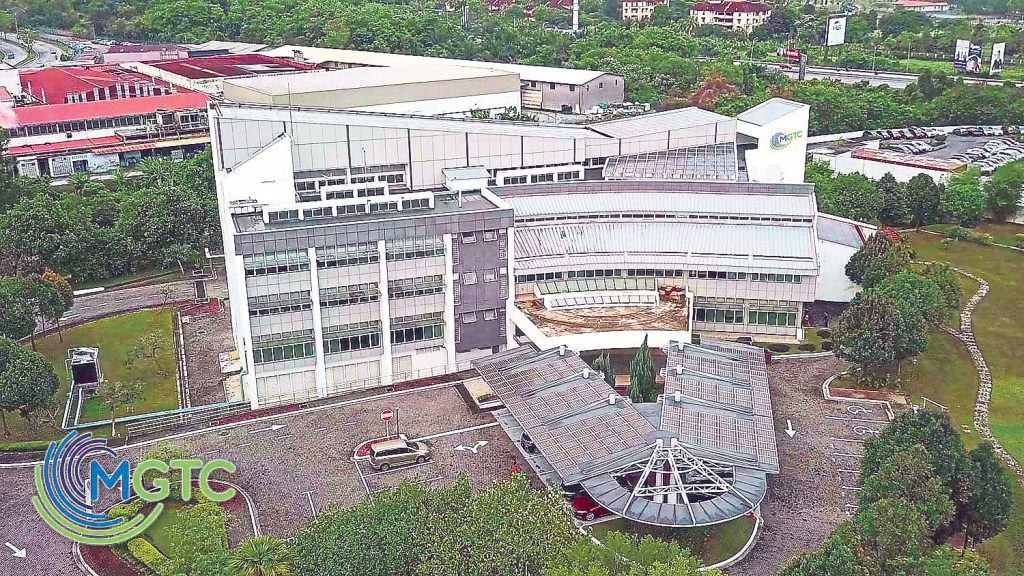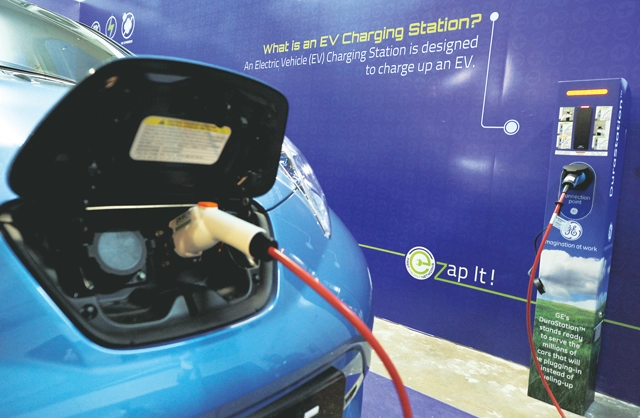
The potential impacts of climate change are huge and immediate action is needed in mitigating it and championing the green agenda
by NURUL SUHAIDI
OVER the years, we have seen the impact of the environmental crisis and climate change in Malaysia which calls for more intervention, especially in urban development.
The worrying scenario, which dominated the global conversation as well as the society at large, has adverse effects on public health as well as labour productivity.
To remain competitive, important players such as businesses and corporations have embraced the sustainability agenda by prioritising the environmental, sustainability and governance (ESG) principles toward greener corporation practices and products.
This trend is backed by PwC Malaysia’s survey on 2021 Consumer Intelligence Series survey which stated that 91% of business leaders believe their companies have a responsibility to act on ESG issues, while 83% of consumers think companies should be actively shaping ESG best practices.
Malaysia as a nation adopts a precautionary principle to mitigate the impact of climate change and so far, has made significant progress to set up the framework for environmental mitigation and mobilise the green agenda.
Last year, the Environment and Water Ministry (KASA) launched the Strategic Plan 2020-2030: Environmental Sustainability in Malaysia which is a comprehensive document that sets clear goals and targets for achieving environmental sustainability by 2030.
It also covers the 12th Malaysia Plan 2021-2025 (12MP), which includes the government’s agenda, current policies and the country’s mission toward Sustainable Development Goals (SDGs).
The Malaysian Green Technology and Climate Change Corp (MGTC), an agency under KASA, was mandated to drive the country in the scope of accelerating green growth, climate action empowerment and cultivating green lifestyle, through green technologies and eco solutions.
MGTC extends its mission to all societal layers and its programmes complement the 12MP and the nation’s Green Technology Master Plan, which outlines the strategic plans for green technology development to create a low-carbon and resource-efficient economy.

Low Carbon Cities Initiative
According to MGTC CEO Shamsul Bahar Mohd Nor, its agency has highlighted its commitment through various programmes and initiatives that encompass the ESG pillar and consistently engages board members and key stakeholders in advancing better ESG implementation through dialogues and debates.
“We have signed many memoranda of understanding and cooperation with various industry leaders to push for better adoption of green technology. Such collaborations are aligned with one of the United Nations SDG 2030, especially Goal 17 — Partnerships for the Goals,” Shamsul Bahar said.
“MGTC also embarked on the Low Carbon Cities initiative, where we assisted local municipal councils in building capacity to work towards reducing greenhouse gas (GHG) emissions in urban areas where the climate change mitigation is more urgent due to the spike of infrastructures,” he told The Malaysian Reserves (TMR).
The Low Carbon Cities initiative tapped into the urban area as it is believed that the area is a vital component of climate change mitigation due to the long lifespans of buildings and transportation infrastructures.
“To help achieve the national carbon emission target of 45% by 2030, MGTC has been working alongside local authorities to establish Low Carbon Zones in state capitals and significant urban areas across the country.
“We look at emissions from energy and water consumption of buildings and common areas, the use of petrol and diesel, as well as waste management,” he told TMR.
MGTC also partnered the Energy and Natural Resources Ministry (KeTSA), to support the National Energy Awards which act as a platform for renewable energy players to share and implement innovative solutions in the field of energy efficiency.
“The award recognises the efforts of local public and private sectors across energy innovation to the Asean level. This demonstrates the ability of local industries to feature ideas and solutions by optimising the supply and use of sustainable energy,” he added.
Programmes, Initiatives at Community Level
In terms of social aspects, Shamsul Bahar said MGTC and KASA launched the Rumah Ibadat Hijau (RIH) programme in 2020 as part of their sustainability initiative at the community level.
“This project aims to make places of worship as a centre that fosters a green lifestyle, and encourages the buildings to adopt energy and water consumption efficiency, waste management and green technology applications.
In terms of effectiveness, Shamsul Bahar said the RIH programme has received participation from 14 places of worship.
“Masjid Al Hasanah in Bangi, Selangor, which recorded the highest CO2 savings from its electricity usage (17% CO2 reduction), received the Low Carbon Cities 2030 Challenge award in 2021. In the pipeline, our team is working tirelessly to engage with 32 mosques from Perlis, Kelantan and Terengganu,” he added.
Other than that, it also launched the Jana Graduan Hijau programme to facilitate participation in green entrepreneurship among graduates and help them generate income through entrepreneurship in the green industry.
For businesses, MGTC also recently launched and developed a low-carbon operating system (LCOS) to enable local businesses across Malaysia to monitor and manage their carbon emissions.
This platform allows businesses to gain real-time insights into their carbon footprint and take the necessary actions to mitigate their emissions.

Lagging Behind
Although various initiatives are being implemented by the agency, Shamsul Bahar revealed that Malaysia is still far behind in terms of providing information and is not spared from facing several irreversible environmental changes.
“Green technology is cross-sectoral and affects all aspects of life. Therefore, the successful deployment of green technology depends on intensive and continuous collaboration between all stakeholders,” he said, adding that implementing green technology effectively requires awareness, communication and teamwork at all levels of society.
He noted that effective communication on the maximum potential of green technology, active involvement and support from the private sector, policies and funding from the federal level are pivotal to help drive investments and innovation.
“Public also has a role to play on the demand side by being willing to pay and use green technologies, such as by buying electric vehicles (EVs) and energy-efficient appliances, which in the long run will help drive down the prices of green technologies and speed up their adoption,” he said.
As for corporations, he said decarbonising their businesses can be a first step in the ESG journey and part of the net-zero transition agenda.
“Subscribing to a decarbonisation platform such as LCOS helps measure your carbon footprint, manage the emissions and encourage you to take impactful climate action as an overall long-term business strategy,” he mentioned.
He added that understanding and measuring the company’s environmental footprint is essential before making any net zero pledges.
Immediate Action Needed
Last year alone, the public was severely impacted by the catastrophic flooding in the Klang Valley and several other states as a result of environmental effects, poor mitigation systems, as well climate change.
The flooding incident in late 2021 and early this year, according to the Department of Statistics Malaysia, has caused the country to bear overall losses of RM6.1 billion.
Therefore, the potential impacts of climate change are huge and immediate action is needed in mitigating climate change and championing the green agenda.
In respect of the current government transition, Shamsul Bahar said so far, there have been no changes in the existing projects or plans.
“We expect they will be continued despite the transition to a new government. Nonetheless, we will remain focused and steadfast in our commitment to accelerating green energy and technology adoption.
“The success and progress over the years show the dedication of our team, who will continue to rise to the occasion,” he added.
Moving forward, he said MGTC will continue to work and improve its environmental agenda because it can no longer continue as if it is business as usual.
“Planetary health needs to be considered in the national development agenda. MGTC will always uphold this value to ensure our country is effectively steered toward achieving the 2030 SDGs,” he concluded.
Sumber: Malaysian Reserve

